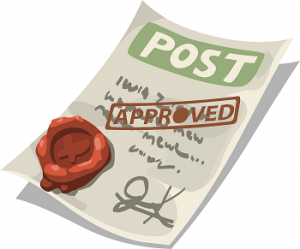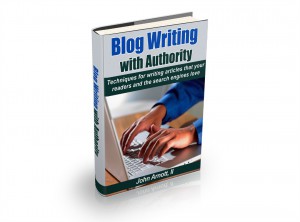 One of the many reasons why blogs are such a powerful SEO tool is because they encourage visitors to leave comments. Each time a visitor leaves a comment — assuming it’s a legitimate comment — it creates fresh new content for the blog, which search engines love.
One of the many reasons why blogs are such a powerful SEO tool is because they encourage visitors to leave comments. Each time a visitor leaves a comment — assuming it’s a legitimate comment — it creates fresh new content for the blog, which search engines love.
However, there are a few things you should know about the do’s and don’ts of moderating blog comments.
Do: Moderate Comments for Approval
Wouldn’t it be great if every comment left on your blog was legitimate and came from an actual human visitor? Well, this isn’t the case, as a large portion of comments are generated from automatic software and programs in an attempt to create spam links. This is why it’s important that bloggers set up their blogs to moderate all new comments for approval before they go live.
For WordPress, this can be done by accessing Settings > Discussion > and ticking the box labeled “comment must be manually approved.”
Do: Respond to Visitor Comments
When a visitor leaves a comment on a blog post or page, take a minute to respond to him or her. You don’t have to respond with a full essay, as just a sentence or two will suffice. Of course, you can feel free to write longer responses if desired. Just remember to respond to visitor comments, good or bad, when possible. Doing so goes a long way in creating a strong relationship with your target audience.
Don’t: Worry About Grammar Mistakes
Whether it’s a misspelled word or incorrect use of commas, we’re all guilty of making grammar mistakes. For whatever the reason, though, blog comments seem to be riddled with grammar and punctuation mistakes (and in all lowercase), leaving some bloggers to believe that it’s okay to correct these mistakes. While this may seem like a good idea, it’s recommended that you leave comments in their original format, even if they contain typos or other mistakes.
Matt Cutts of Google’s Webspam team recently posted a YouTube video in which he answered, “Should I correct the grammar on comments to my WordPress blog? Should I not approve comments with poor grammar? Will approving comments with grammar issues affect my page’s quality ratings?“
According to Cutts, poorly written comments will have ZERO effect on a site’s search ranking.
Don’t Delete Criticizing Comments
Not every visitor who leaves a comment is going to praise your work. On the contrary, some may criticize a post or page, especially if it contrasts with their own personal views or beliefs. Rather than reigning over your blog with tyranny and deleting all critical comments, leave them up. This will show visitors that you are unbiased and willing to hear from different perspectives. Besides, anytime you delete a comment, you are essentially deleting content from your blog — and that’s never a good idea.
How do you moderate visitor comments on your blog? Let us know below!


What is your advice on the proper way to respond to a “troll” and other negative commentary on your blog without fanning the flames of their argument further?
I have found that I learn quite a bit from interacting with commenters and establishing a dialogue with them. What better way to gain insight into how your readers perceive your work and the areas you can improve upon?